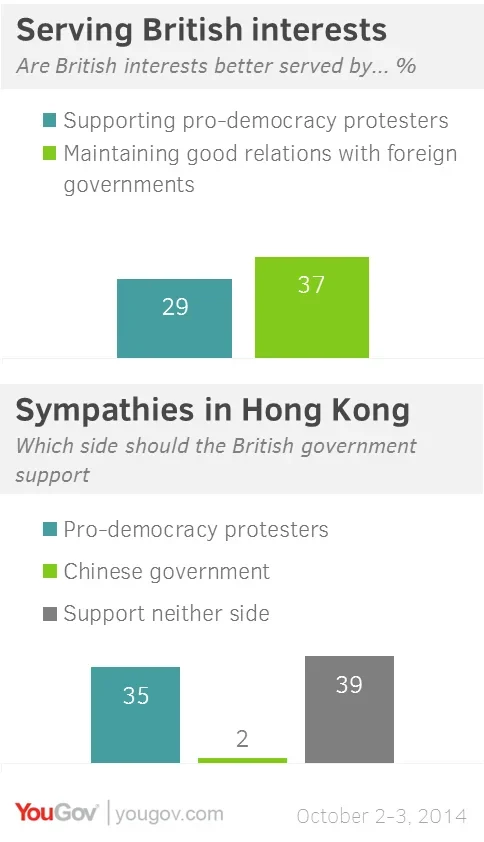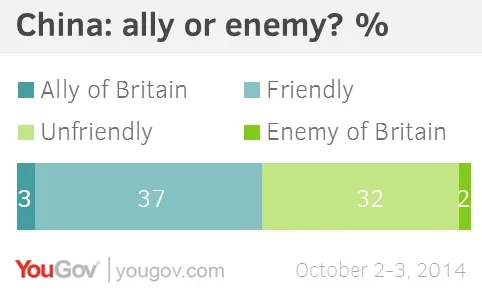In general the British support good relations with foreign governments over pro-democracy protestors – but in the case of Hong Kong the Chinese get no sympathy
A student boycott of classes was escalated on Sunday as a new movement, Occupy Central, joined forces to take over central Hong Kong. In the early hours of Monday morning police tried to disperse crowds using batons and tear gas, but this only served to increase their numbers. Tens of thousands have been occupying the central business district, protesting, as they see it, China reneging on an agreement to hold open elections in 2017.

New YouGov research finds sympathy for the protestors of Hong Kong, running contrary to views on safeguarding British interests.
In general, the British public tend to see maintaining good relations with foreign governments (37%) as having priority over supporting pro-democracy advocates (29%) when protecting British interests.
But in the specific case of Hong Kong there is an exception: 35% say the British government should support the democracy groups and only 2% the Chinese government. 39% say the government should stay out of the matter altogether, however.
This is despite the British public’s fairly warm view of China. 40% see it as an allyor friendly relation, while 34% see it as unfriendly or an enemy.
Britain acquired Hong Kong on a 99 year lease in 1898, when few believed the territory would ever be handed back. But after years of negotiation the lease was honoured and the region was handed back to the Chinese in 1997. British people tend to think the handover has left Hong Kong worse off (36%, compared to 6% better off and 24% no difference).

Yesterday Occupy Central accused the Chinese and Hong Kong authorities of coordinating pro-Beijing protests to oppose the movement. The disagreement is over Beijing’s decision to only permit vetted candidates from standing in 2017’s general election after promising democratic elections. Beijing’s position is that universal suffrage refers to the right to elect, but not the right to choose who is elected.
Image: PA









